Blog
Stories of the Season: Mustaba’s Restaurant
This Christmas season, we’re celebrating the accomplishments of former refugees in our community. This is the story of Mustaba and Tantuni Restaurant.
“I’ve been in the United States five years and 2 months. I came to the US when I was 19 years old, and I started as a student in high school. Everyone told me at that time that I can’t graduate from the high school, because I only had 2 years. I started as a freshman, but after 2 years I graduated, and finished all my classes. Yeah, that was my first achievement here. It was a lot of sadness, a lot of giving up. At the same time, I thought, ‘Everyone can do it, why I can’t do it?’ If you believe in yourself, you can do whatever you want.
“I came from Turkey. I used to live in Turkey. Most of the struggles I had there, were because I didn’t know if I would come here or not. You really get frustrated there. You don’t know what’s your future, don’t know what you’re gonna do. I came here on October 6, 2016. After that, I started thinking about my life, thinking about my future.
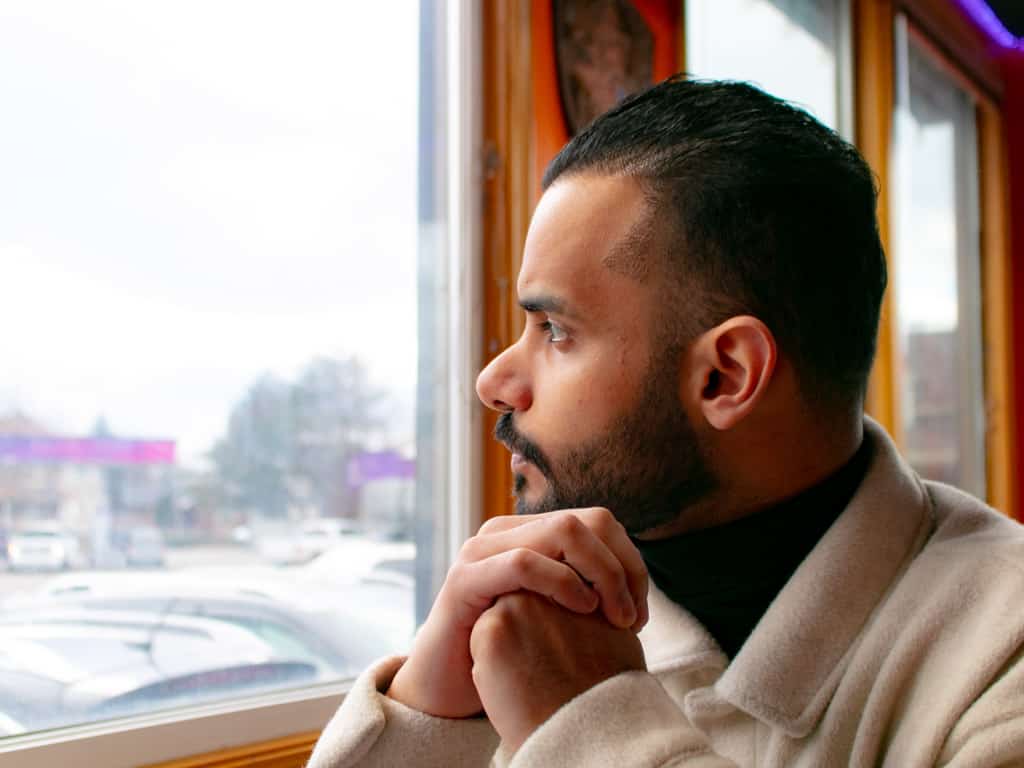
Image description: a portrait of Mustaba sitting at a table in his restaurant. He is looking out the window.
“When I first went to World Relief, they taught me about the life here, what people are thinking. I like the classes there. They teach you how to live with the other people from different cities, from different worlds. They’re all thinking you’re a human, and they’re just thinking everyone should deserve a better life. Which is what I like about them. Whenever I went there, they would help me with a smile.
“When I got my first job here, I was working in a restaurant. I worked with Fadha. He was my manager. We used to share lots of breaks together, so we would talk. He’s from the same country, so it was easy to talk about lot of stuff, especially in Arabic. So he told me about himself. Fadha’s been a chef for 22 years now. He used to work with an American company to do a buffet, for American people. He was the head chef over there. Fadha told me a lot of stories, and he cooked for me as well, and I really liked his food. I was joking with him, I was like, ‘if I open a restaurant, I will make you my chef.’ And we were joking about it because he didn’t believe that. I didn’t believe it either. Fadha was my manager. And I really didn’t think about it.
“I always say I have two families. One is my regular family, like my parents, my brothers. My other family is my friends. In this life, you have to find two families: a family who raises you and takes care of you, and family who will support you – that’s my friends. Whatever’s happened, whatever’s going to happen, I will still have these two families forever. In the happy time, in the sad time. All the time, they were with me. I love both my families.
“My brother is from both families. He is my brother and my best friend as well. We don’t have that rivalry between brothers. When we were kids, we were like Tom and Jerry. We were fighting all the time. My brother, he’s older than me by five years. We were fighting so hard. This scar on my eyebrow, that’s from him. Today, the eyebrow scar, it’s like the models, it’s like a style. When I was 4 and he was 9, I broke his train toy. My dad brought it from India, I think. He brought it to him. And my brother was playing with it, and I just broke it. And he was mad and hit me. Now, he is my best friend and my brother at the same time. But I like to call him best friend better.
“He found a place, and we planned to open a restaurant there in March 2020. A restaurant called Tantuni. I studied everything. If you don’t know anything about the business you’re going to open, you’re not going to get anything. So I studied the people here, the ethnicities here. I studied the culture. I studied what people like and don’t like. I was going to a lot of restaurants. When I went, I didn’t want to eat. I was looking at the décor, the customer service. Sometimes, I asked people if they liked the food or not. I got ideas, and collected those ideas together. When we tried to sign the contract for the restaurant, COVID hit and cancelled everything. We’re back now, after everything.
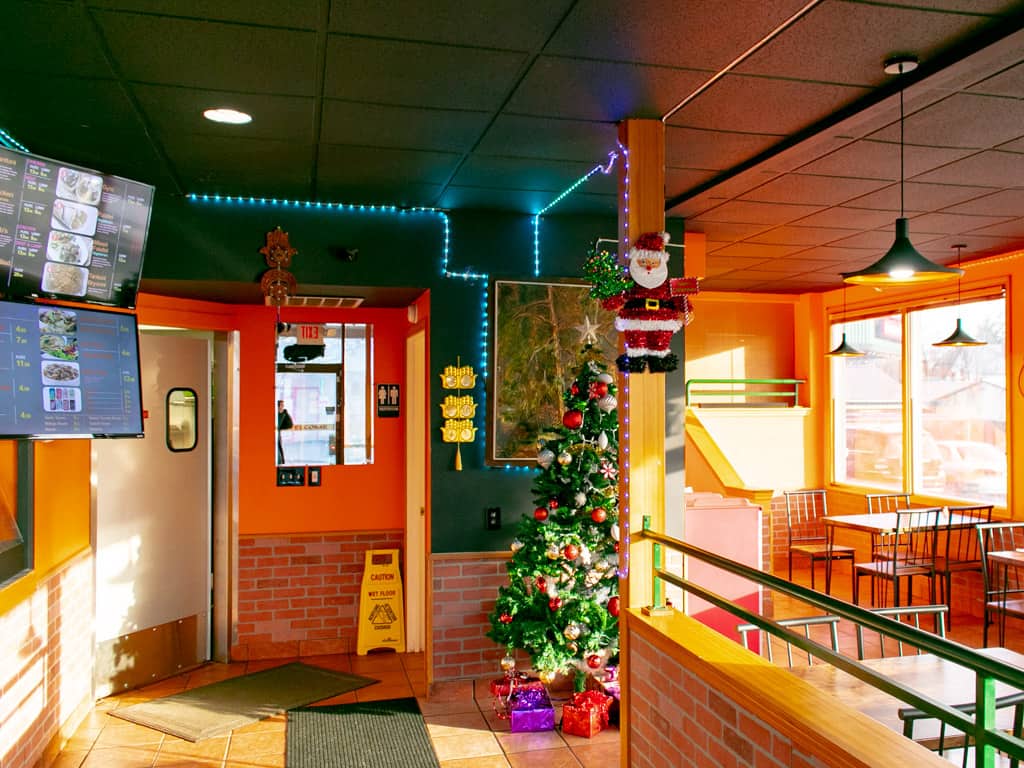
Image description: a picture of Tantuni’s newly remodeled interior. There is a Christmas tree beside the serving counter.
“My brother and I used to remodel houses before we started Tantuni. From our experience remodeling, we remodeled all the restaurant all by ourselves. Everything here is by our hand. The lights, the pictures, the TVs, even the logo. It was our idea. We went to the guy who did logos and said we want something like this. We gave him the idea, and he just drew and made it for us. We brought our ideas together. The colors, my brother picked the black color and I picked the orange. Even the décor we had ideas together. We did everything together. Our friends helped a lot. Hussein, and Mohamed, and Tito. They helped us open this restaurant. I called Fadha, my old manager, and I told him, ‘Hey, I’m opening a restaurant called Tantuni. Do you still want to work with me?’ And he laughed, because he thought I was joking. When he met me and my brother, we agreed about everything. Fadha’s our chef now. I still can’t believe that.

Image description: a photo of Mustaba posing with the sign for his new restaurant, Tantuni.
“It’s just the beginning. I don’t want to do something and leave it in the middle. I’m not stopping when people say you got success, you did a great job. It’s not a great job for me until I see Tantuni as a brand, like the fast food chains. A better brand. The idea of opening this restaurant, I wanted to make it a mix between fast food and cuisine food. Cuisine is fresh food, delicious food, and cooked right away. And fast food, the order is going to take 10-15 minutes at most. I just want to show the people, it’s fancy fast food. When people come here, they’ll trust me about what they’re eating. That’s what it’s all about here. I don’t want to make money, I want to make customers.
“My brother’s in Turkey now. He got married, and he’s waiting for the consulate in Ankara so they can meet his wife and he can bring her here. He’s just waiting there. I’m praying for him every day. So he can come and see what he did. He was here when we signed the contract for the restaurant. But he left 2 weeks before Tantuni opened. He can’t see what we do until he sees with his own eyes. Even if I told him everything for 24 hours, it would not feel right until he sees with his eyes. Hopefully, he’ll come soon. “I got a lot of ideas. I like to think differently than other people. I like to be unique in my thinking, in my ideas. I like to be positive all the time. You’re only going to live one time, this life. If your mentality and mind are set up for positive thing and happiness, if you like to see people happy, you’ll be happy as well. I just hope everything will be fine in 2022, and all the people will be safe and happy. That’s what I wish for. But what happens in the future, let’s just keep in the future. As my dad says, ‘Don’t think about the future, make it.’ Whatever you want to do, whatever you’re going to be, make it by your hand. Nobody’s going to come to you and say, ‘Oh, you want to be a doctor? I’ll make you a doctor.’ I want to finish my dream, to be an engineer. I wanted to be a petroleum engineer. But I think in the future, the petroleum will be all gone. The world will need new energy. So I believe electrical engineering will be the best path for me. No one’s walking with a magic stick to make your wish a reality. If you want something, make it happen.”
Justin Li | 12/20/2021
4 Ways to Read, Watch, and Listen to Powerful Immigrant and Refugee Stories
At World Relief, we love to bring you inspiring and meaningful stories about the immigrants and refugees arriving in Chicagoland. Yet we are all part of an even bigger story – of migration, change, poverty, and global factors that impact all of us. To give you insight into this bigger story, we put together this list of four resources in varying formats – podcasts, a film documentary, a book and articles. Each one gives the audience the chance to see the bigger picture through the eyes of immigrants and refugees. We hope these stories move your heart and that you feel inspired to join the work needed to create a better future.
Podcasts
This American Life, “693: Abdi the American”

What is it? This podcast episode from This American Life returns to a story from years prior of Abdi, a Somali refugee living in Kenya, who won a visa lottery to come to the U.S. as a refugee. And before he can make it to the United States, the police start raiding his neighborhood and targeting refugees. This story picks up three weeks after Abdi finally became a U.S. citizen in Maine. Take some time to listen to his account from years before of winning a visa lottery and then facing incredible obstacles before making it to the United States.
NPR’s Code Switch Podcast, “What Does It Mean to Be A ‘Nation of Immigrants’?”
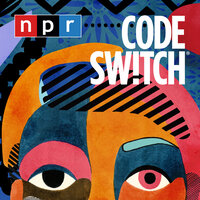
What is it? NPR’s Code Switch Podcast specialized in sharing stories about culture and race that are rooted in current events. Although the events that inspired this podcast occurred in 2018, this episode remains relevant because it also explores the bigger picture of how immigrants fit into the U.S. as a country – and the challenges many face after arrival. Through an interview with refugee and immigration law expert Hiroshi Motomura, this episode dives into topics like family-based immigration, the history of how immigrants have been treated, and how it feels to be an immigrant in the United States.
Beyond Soundbites Podcast, Episodes 17 and 18 “The Reason I’m Here” in the “Searching for the Personhood of Refugees” Series
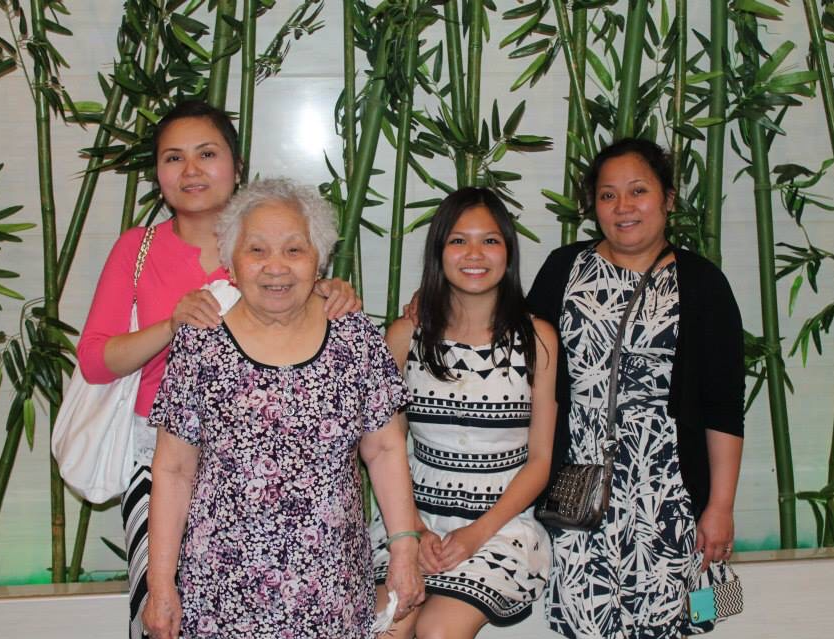
What is it? The Beyond Soundbites podcast takes a faith-informed approach to exploring the complex refugee experience. Episodes 17 and 18 explore the story of Trang Tran, who arrived to the U.S. from Vietnam as a baby thanks to the Refugee Act of 1980. Trang invites listeners to join her as she pieces her story together and seeks to understand her own family’s story. Also, many of the creators and contributors to the Beyond Soundbites podcast have long-term connections with World Relief. And they apply their own passion for welcoming immigrants and refugees to every aspect of the podcast.
Movie
Human Flow by Ai Wei Wei

What is it? Human Flow is a stunning and epic documentary film by Ai Wei Wei, an internationally renowned artist who applies his creativity to visualizing global mass displacement. Ai Wei Wei explores the tension between the enormous scale of displacement and the poignance of individual stories. And since the film was released in 2017, the global displacement crisis has only grown, which makes the film’s mission to understand the experience of displaces people and promote a belief in everyone’s unique value more relevant than ever. And through powerful visuals, interviews and stories, the film makes the global refugee crisis feel real in a very personal way.
Book
The Girl Who Smiled Beads by Clemantine Wamariya and Elizabeth Weil

What is it? This autobiography tells the story of a young woman who is a refugee and whose family fled their home when she was only six years old. Spanning years, the book traces her family’s journey through refugee camps in seven African countries until Wamariya eventually makes it to the United States as a refugee. However, the story doesn’t end there…
“It’s strange, how you go from being a person who is away from home to a person with no home at all. You are unwanted, by everyone.”
Clemantine Wamariya and Elizabeth Weil
The Girl Who Smiled Beads describes a family’s struggle to hold onto their dignity. Their fight to stay together. And the lingering trauma that lasts far past the actual violence they experienced. Even after arriving safely in the U.S., Wamariya describes wanting to challenge stereotypes and throughout the book, she pushes back. Should you see her as a poor, grateful, exotic refugee? No, she is a person of agency, feelings, and unique experience.
Article
NPR’s Goats and Soda, Stunning Photos Depict Migrants ‘As They’d Rather Be Seen’ by Malaka Gharib
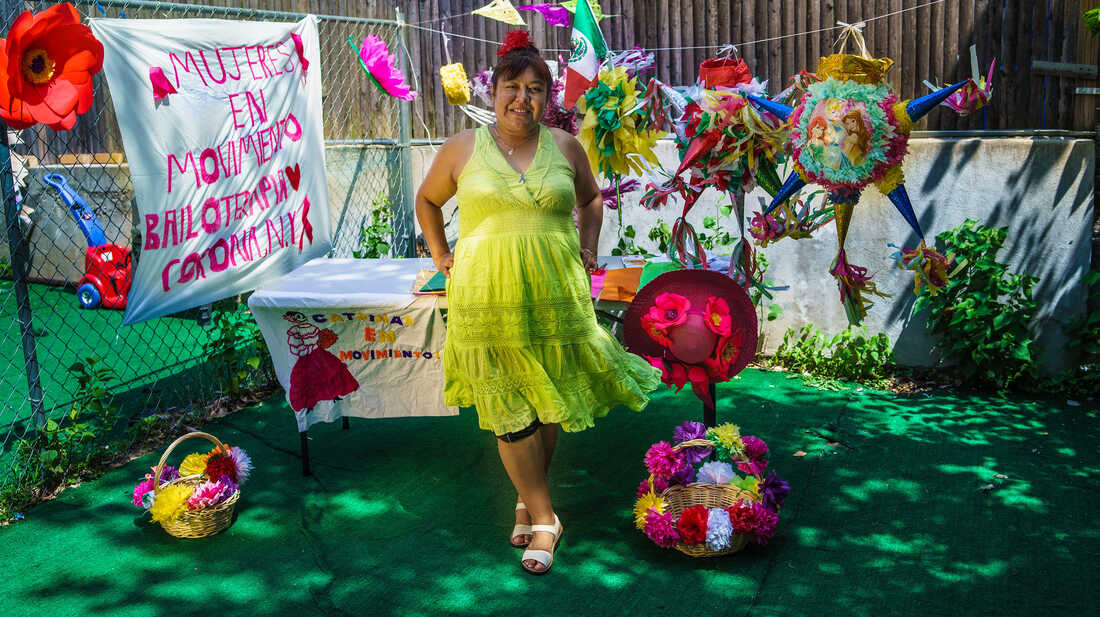
What is it? We have all seen heart-wrenching images of refugees and immigrants suffering, as oppressed and victims of violence. And in contrast, this article profiles a photo exhibit called Another Way Home. The art show provides a different narrative. It shows people how they want to be seen. And it does so by featuring 13 immigrant, migrant, and refugee photographers, artists, and storytellers and showcasing their works of art.
What will you learn next?
We hope that these resources help you connect to the stories of refugees and immigrants: people who come from different backgrounds, places, and stories but have dreams and goals for their lives. Ultimately, this is a launchpad. There are countless stories out there of people who overcame obstacles, faced incredible challenges, and are rebuilding their lives after loss and displacement. Because of that, we hope you will think of this as a starting place. Whose story will you hear next?
Continue reading:
Abdul and Yao: Story of Impact
Moving Forward with World Relief Durham
This fall, a few of World Relief Durham’s partners shared why they serve with World Relief and what it looks like for their community to move forward together. Here are some of their thoughts:
Why World Relief?
“They not only serve [the international community] well, but they love it well, and they do it from a biblical perspective and they do it holistically, which is very, very important to a person who has no idea what to do next.”
Raven Fox, ServeRDU Associate Director of Community Training, The Summit Church
“World Relief is great access to finding people that we can support as a church, and it’s also a place that gives us the tools with the training before people enter – that’s really helpful for them to be culturally sensitive and ready to help in a good, kind way!”
Andrea Tshihamba, World Relief Durham Volunteer
“I think it’s a great organization that combines our love for Jesus with love for people. I think keeping those things together is really important for us, as God’s people, and as a pastor, I’m excited that this is an organization that really shows us how to do that.”
Dave Dunderdale, Associate Pastor, Blacknall Memorial Presbyterian Church
How have you seen your community “move together” to create lasting change?
“I think Durham represents a lot of history and a lot of grit. And I feel like World Relief Durham is part of that community and when, for example, with the Afghanistan crisis, the amount of outpouring to […] donate money to help World Relief Durham to be able to serve the refugees coming in, was completely – we were all just blown away by the support of the community.”
Naoshi Yamauchi, World Relief Durham Board Member & Volunteer
“We’ve seen more and more people thinking through what skill set or what gifting they have and how they can leverage that. […] One [example] around housing: some people who own a variety of rental units, and have been thinking how could they make them affordable; make them affordable especially to refugees who are just getting here. Maybe you have no credit history; maybe you can’t afford market rate. So they’re able to offer them at affordable rates, and be able to work with them to build credit and to be able to eventually move towards owning their own homes.”
KJ Hill, Pastor of Community Development and Outreach, The Summit Church
Interviews collected by Karen Spencer, U.S. Marketing Partner, World Relief, and Rachel Clair, Content Manager, World Relief.
Resettled: One Woman’s Journey Beyond Rebuilding
As the number of refugees arriving in the U.S. continues to increase in the coming months, we invite you to partner with us as we welcome them. Today, we’re excited to give you a glimpse at the lasting change that can happen when we move together.
A Crossing of Paths
At World Relief, we’re honored to walk alongside refugees and immigrants from around the world as they rebuild their lives in the U.S. Sharing their stories with you is a privilege. Often though, the stories we share are limited to a short and intense part of people’s lives.
Years later, you may wonder along with us, “How is that family doing now?” I never expected to get an answer to this question when I moved from North Carolina, where I worked at World Relief Triad, to Utah. But that’s exactly what happened.
Two weeks after moving, I bought a plant on Facebook marketplace from a woman named Buthainah. It didn’t take long for us to realize our shared connection: she had been resettled by World Relief Triad in 2009. Hearing her story reminded me of the lasting impact we can have when we move together. Buthainah eagerly agreed to share her story with us today.
When Everything Changes
Buthainah grew up in Baghdad, Iraq. Although the country was tightly controlled by Sadam Husain’s regime, she remembers having a happy childhood.
Her father worked as a major general at the naval academy, and her mother was an architect. Buthainah did well in school. She was a child of imagination — drawing, reading and writing stories in which she was the heroine. “Life was simple for us kids and family,” she said, “we were happy and content!”
But then war broke out, and everything changed. At 13, Buthainah fled with her parents and four sisters to Jordan. Two and a half years later, they were selected for resettlement in the U.S.
Flying to the U.S. was stressful. As a family of seven, they struggled through the airport with two suitcases each. Buthainah remembers bringing clothes, drawings and a memory book from elementary school with notes from her friends and teachers. “I’m a very sentimental person. [They’re] silly things, but they hold a lot of value for me.”
Buthainah’s family arrived on June 25, 2009. From geography to environment to culture, Buthainah was immersed in a world of difference. And a world where she, herself, was labeled as different.
“You have your life, and all of a sudden, it’s taken away from you,” she said. “And then you are labeled as a refugee, not who you are. It makes you feel unseen and it diminishes your value… or at least it did for me.”
Someone to Walk With
But someone did see Buthainah and her family — former World Relief Case Manager, Brian Boggs. “Brian was one of the very few people early on to really understand us,” Buthainah remembers. “He spent time to explain the system to us.”
Brian drove the family to appointments and made sure the kids were enrolled in school. He helped them navigate their new home, finding grocery stores and bus routes.
“[Case management is] basically like helping somebody start their life over in a new place,” Brian explained. “If you think about all the basics people just take for granted — children going to school, parents, if they need it, getting English classes — you’re trying to guide people in a way that will help them be successful later on.”
In the midst of hectic transitions and changes, Buthainah remembers that Brian was there for her family when they needed him most. “He was a stranger to us, [but he] made it easier to feel people cared and saw us for who we were, not just another number or another person who is going to be a burden.”
Life After Resettlement
With Brian’s help, Buthainah’s family adjusted to their new lives in America. The girls settled in at school and their parents found work. Their lives were being rebuilt. Eventually, Brian became busy caring for more recent arrivals, and Buthainah and her family transitioned out of World Relief programs, pursuing new dreams of their own.
Buthaina’s parents both went back to school for master’s degrees and then PhDs in computational science. Her mom is now working as an energy analyst and her dad is retired.
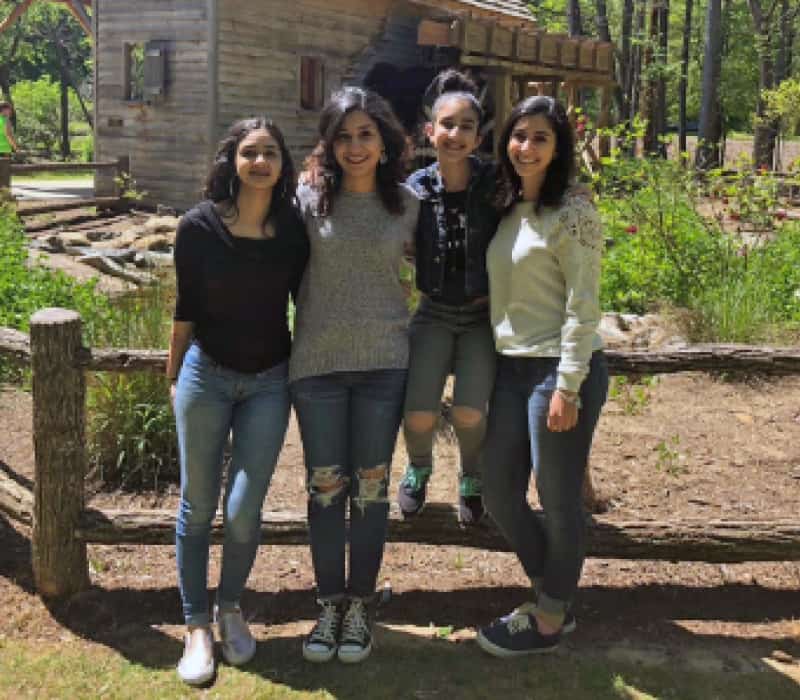
One sister is completing her residency in Delaware. Another is working as a paralegal and plans to go to law school. The third is in college, and the youngest, who was only five when they were resettled in the Triad, is hoping to finish high school in just three years.
As for Buthainah, she graduated high school with excellent grades, went to college, and worked as a process chemist at a pharmaceutical company. She then decided to attend graduate school in Utah.
Today, she’s moved back to Greensboro to be closer to family and has successfully completed a PhD in organometallic chemistry. She’s now dreaming of starting her own business and maybe even a reform movement.
“Like reform of education and reform of the way we think,’ Buthainah said. She wants to help people understand the many ways we can learn and approach life. “Exactly how I’m going to get there?” she laughed, “I don’t know — but I have faith that it will all work out.”
When We Move Together
Twelve years later, Buthainah’s had time to think about her experience of resettlement. When asked what she would say to her younger self, she said, “Just know who you are. Be true to who you are, and don’t be ashamed of where you come from.”
She also had some advice for those welcoming refugees now. “You have a choice to judge another human being and make them less than you or not,” she said. “We’re very thankful to the people who really gave us a chance and gave us a start.” People like Brian.
When Buthainah and Brian recently reconnected, she told him, “You made us feel seen and you made us feel like we’re humans and we have equal chance. Because of that, we were able to believe in ourselves. It just takes some people sometimes to have that faith in you at your lowest when you doubt yourself.”
But Brian is reluctant to take credit.
“When you know people who are going through some of the hardest things not only that they’ve been through, but maybe all of humanity could go through,” he said, “you see potential. I don’t take credit for any of it… [Buthainah’s family] worked hard and believed in themselves. It’s theirs. It’s really nice to be invited into their journey.”
We are so grateful to partner with families like Buthainah’s. As the number of refugees arriving in the U.S. continues to increase over the next few months, it will take all of us to build communities of welcome. So, move with us and we’ll welcome them together.

Kelly Hill serves as a Content Writer at World Relief. She previously served as Volunteer Services Manager at World Relief Triad in North Carolina before moving to Salt Lake City. With a background in International and Intercultural Communication, she is passionate about the power of story to connect people of diverse experiences.
Holiday Gift Guide 2021
Welcome to World Relief Chicagoland’s first annual holiday gift guide! We’ve created a holiday gift guide that creates change with every gift you buy.
When you purchase a gift from the holiday gift guide, you’ll be a part of building welcoming communities for refugees and immigrants.
So, what are you waiting for? This holiday season, give a gift that gives back.
World Relief Box from Anchor of Hope Box
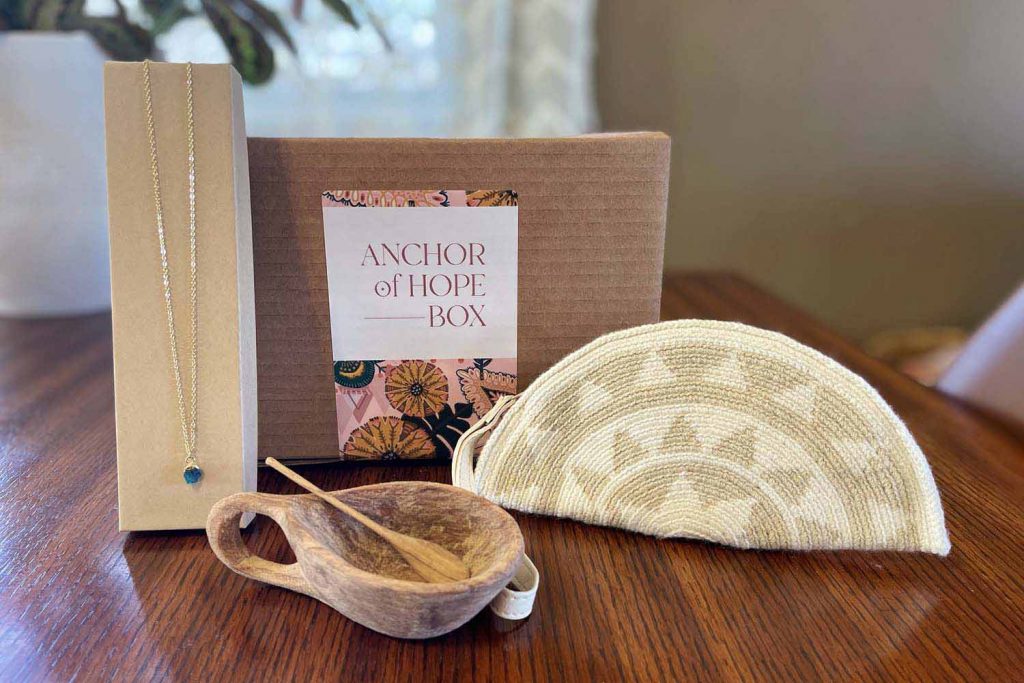
Send hope to a loved-one’s doorstep (or your own!) with our exclusive World Relief gift box. We’ve partnered with Anchor of Hope Box to create a unique gift featuring beautiful, handmade items crafted by refugees, survivors of trafficking and people experiencing displacement around the world. Each box provides hope in the form of dignified and sustainable employment to people in vulnerable situations.
Order by December 14th for boxes to arrive by Christmas.
Re:new

Shop beautifully created bags, accessories, and more at Re:new. Re:new offers free sewing classes to refugee women in Chicagoland and then whenever possible, hires the graduates of the program to work in their studio and sell their items through their store.
Endiro Coffee

For the coffee aficionado in your life, locally based Endiro Coffee have a coffee subscription that your loved one is sure to enjoy.
Whitney Winkler Calendar
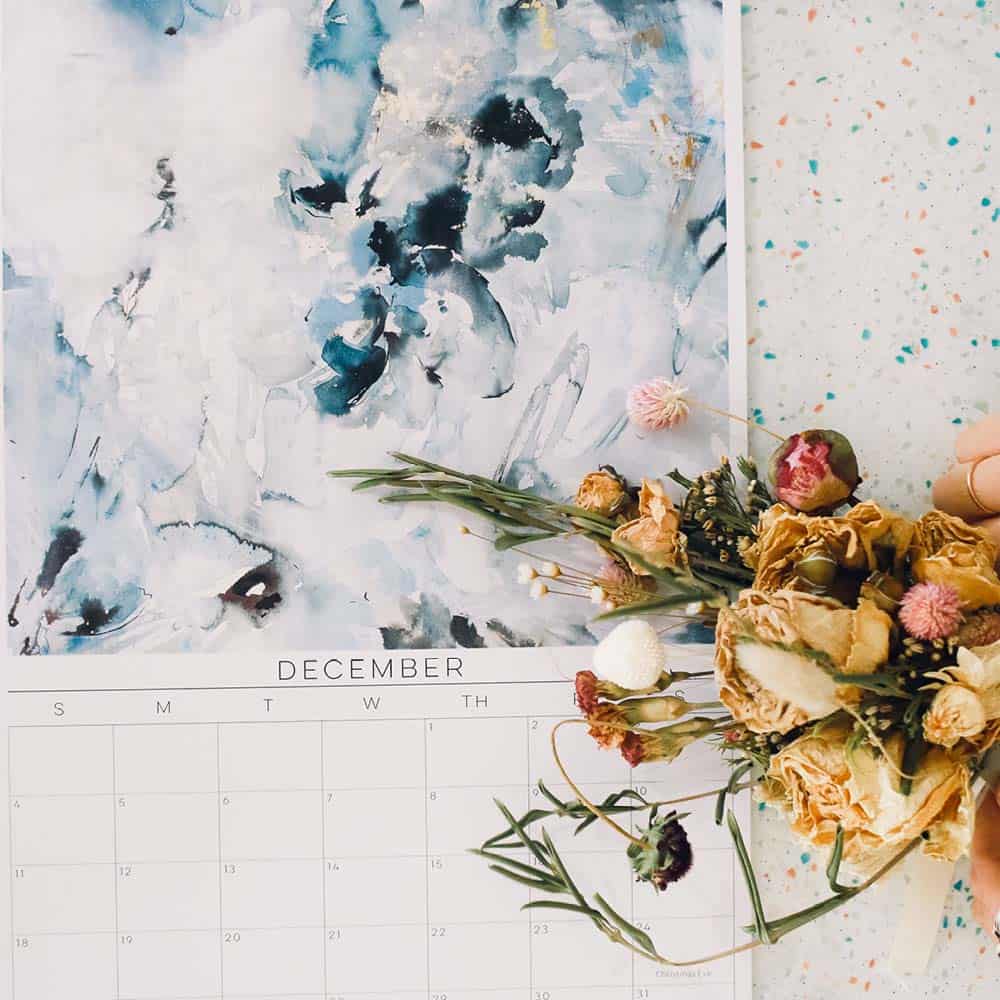
Bring some art into the everyday with this limited-edition calendar from Memphis-based artist Whitney Winkler. 100% of profits support local World Relief efforts.
The Happy Givers Collection
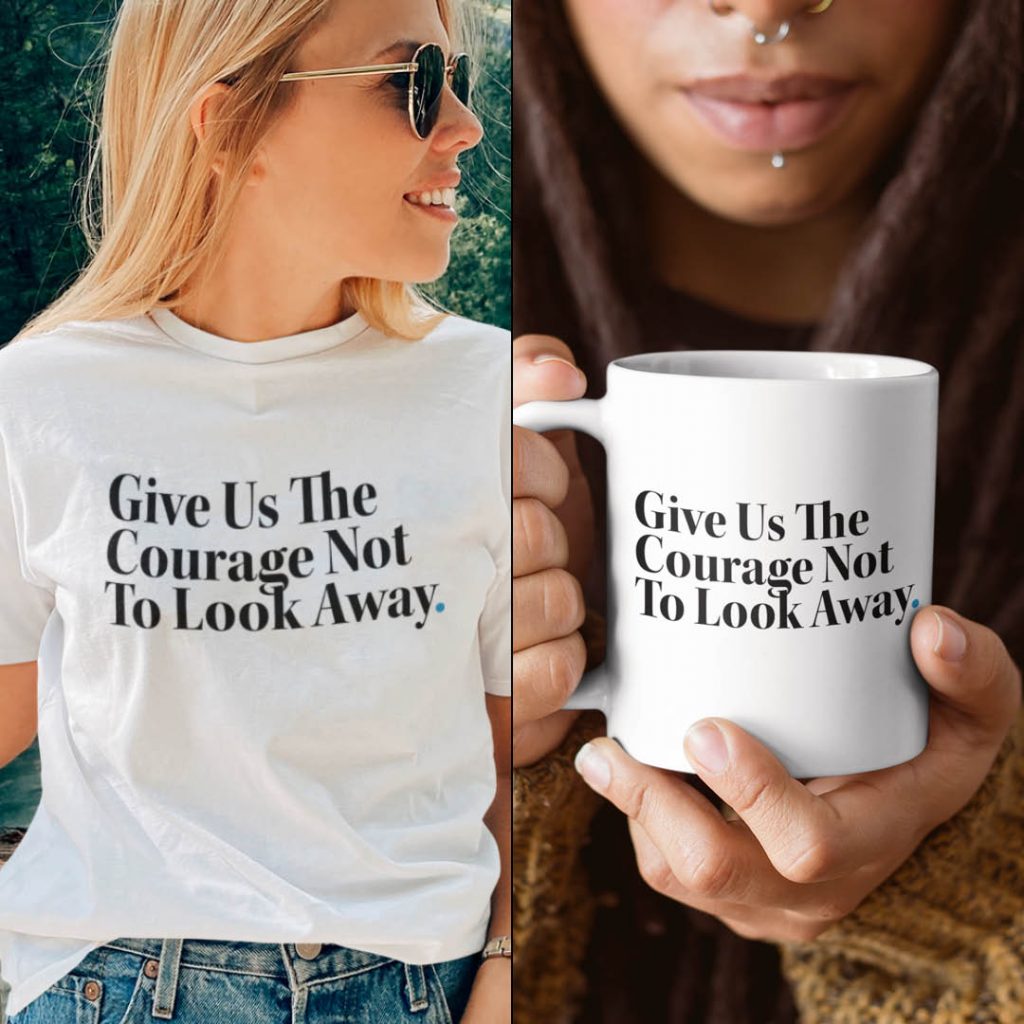
A gift that does good and looks good. The Happy Givers World Relief Collection is quality apparel with a purpose — perfect for the person in your life who likes to make a statement.
Refugee Bath Co.
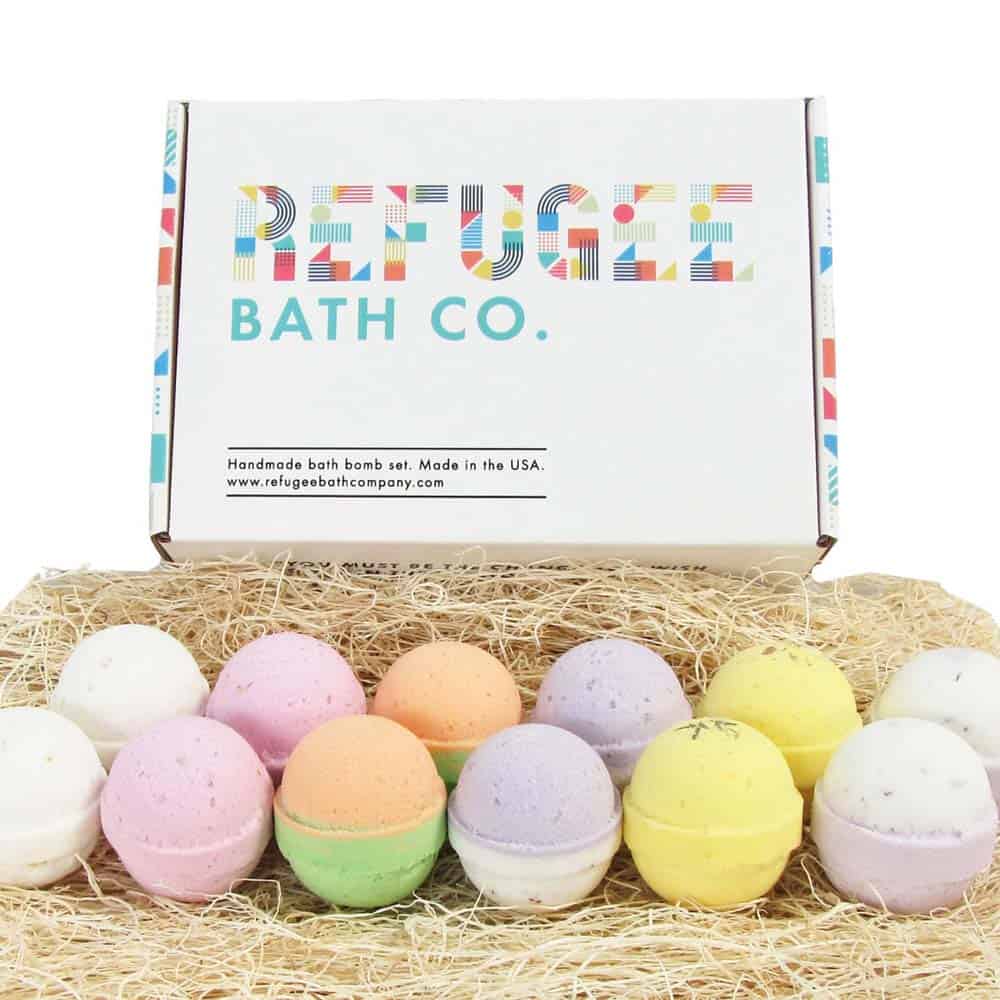
Love. Energy. Nourish. Soothe. These are just a few of the words used to describe the bath bombs from Refugee Bath Co. whose mission is to provide opportunities for refugees in Washington to thrive.
prettyinside. Facial Masks
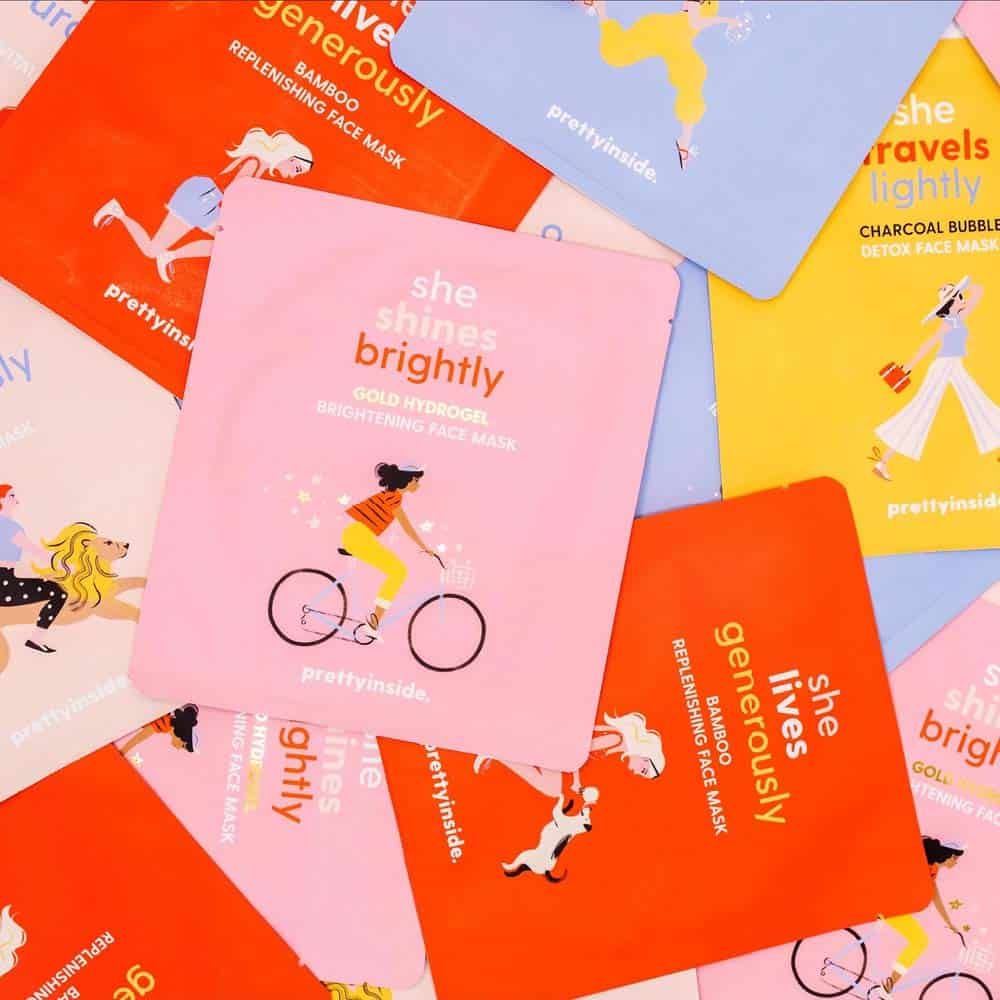
For the woman (or man!) in your life who wants their outside to shine as brightly as their inside, pick up a few face masks from Musee Bath’s newest line.
Hawa Images

Mark a special moment in your life with a photo package from Hawa Images. Studio owner Roxanne Engstrom believes in the power of story to inspire people to empathy and action.
Pen + Pillar Stationary
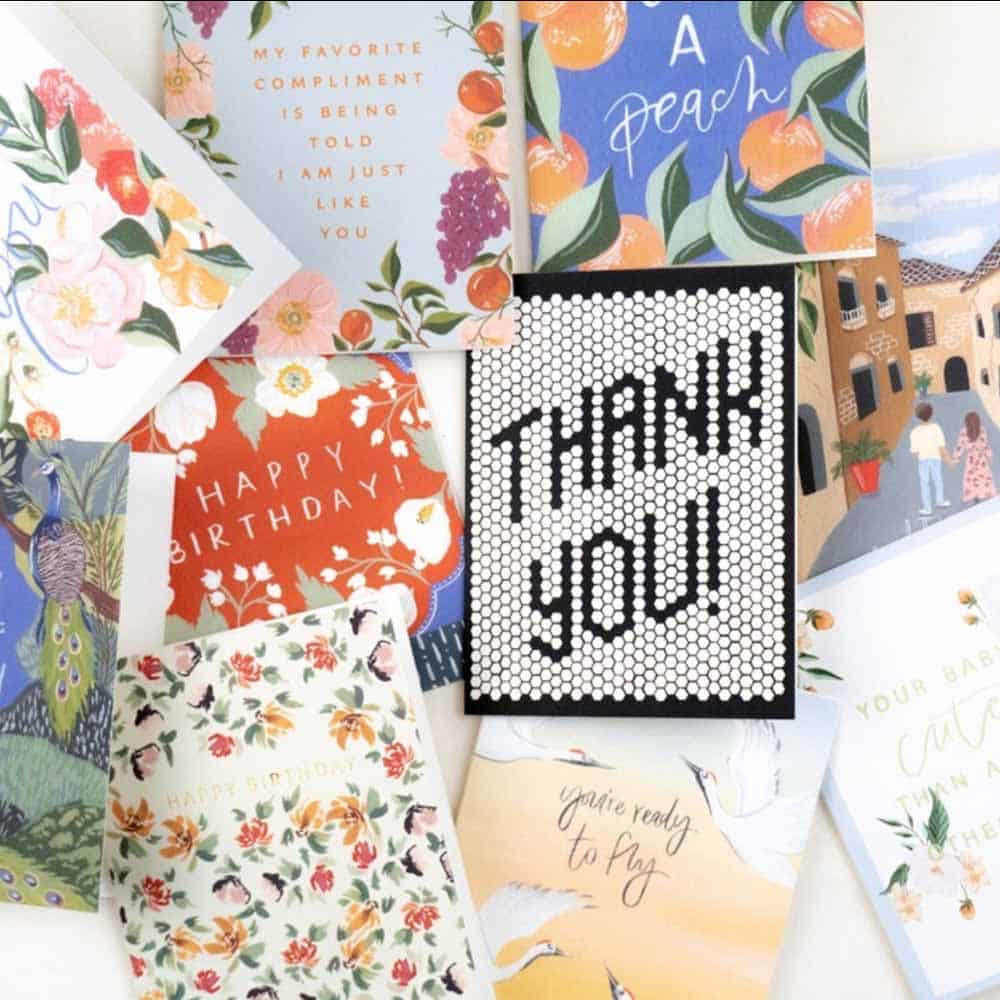
For the writer and kind-hearted giver in your life, shop owners Taylor and Justin have created a series of notebooks, greeting cards and art prints that your loved one is sure to enjoy.
Give the gift that keeps giving.

For the person in your life who is passionate about building welcoming communities for refugees and immigrants, gift a membership to Monthly Partners – World Relief Chicagoland’s monthly giving community.
Through their gifts each month, Monthly Partners partner with World Relief to create lasting change in Chicagoland for refugees and immigrants. Together, we equip immigrants and refugees to overcome barriers, achieve sustainable livelihoods, and seize a brighter future as they rebuild their lives in the United States.
Right now, their full first year will be matched dollar for dollar up to $50,000!
Gift Monthly Partners and spread the gift of lasting change.
Servant: Caring for the Immigrant and Refugee
This discipleship video from one of our church partners, The Summit Church, discusses the Biblical command to “welcome the stranger” and offers some practical steps believers can take to follow God’s call, including giving, volunteering, and advocating alongside World Relief Durham.
“God commands his people to care for strangers and foreigners, along with the poor, the widows, and orphans. It’s important to recognize that these passages are not simply proof-texts free of context. Rather, compassionate and just treatment of foreigners is a core ethical principle, rooted in God’s covenant with his people. Just one representative example is Leviticus 19:34, ‘The stranger who resides with you shall be to you as the native among you, and you shall love him as yourself, for you were strangers in the land of Egypt; I am the Lord your God.’ As God cared for his people when they were oppressed strangers in Egypt, his people were to demonstrate his faithfulness and compassion by welcoming strangers into their community and treating them justly.”
“Servant – Caring for the Immigrant & Refugee” – The Summit Church (00:49-01:43)
Receiving to Give: Agali’s Story
As a client of World Relief and recipient of locally raised funds, Agali realizes the impact that the community had in shaping his story.
The Hopeful Journey
Following his arrival to the United States on September 27th, Agali didn’t know when he would work again. Settling in the United States consumed the next month of his and his family’s lives. After working in security for the U.S. embassy in Niger, he was hopeful. Two of his colleagues, both based in the U.S., helped him apply for a Special Immigrant Visa (SIV) so that he and his family could receive protection.
Additionally, the hope would be for him to have access to some benefits like other refugees. While most refugees receive assistance in housing, employment, education, and healthcare, not all have aid in these areas. This is the category that Agali would fall into once he immigrated to the States. But what if the financial assistance required for these benefits came from somewhere else? What if this funding was already met before Agali even arrived?
“For a while now, we have been unable to assist populations who are here on SIV or have received an extension (past the typical five years that they’re able to receive services) due to COVID,” says Raphael Ramazani, Employment Specialist. While the Office of Refugee Resettlement (ORR) gives most resettlement agencies and nonprofits that provide Refugee Support Services funding for employment, certain kinds of refugees and immigrants are not always eligible (as is the case with Agali).
It’s for situations like these that locally raised funds “act like an extra set of hands,” as Raphael states. “They enable us to extend and reach out to these parts of the population (SIV clients, COVID-extension eligible refugees) that we couldn’t serve before.”
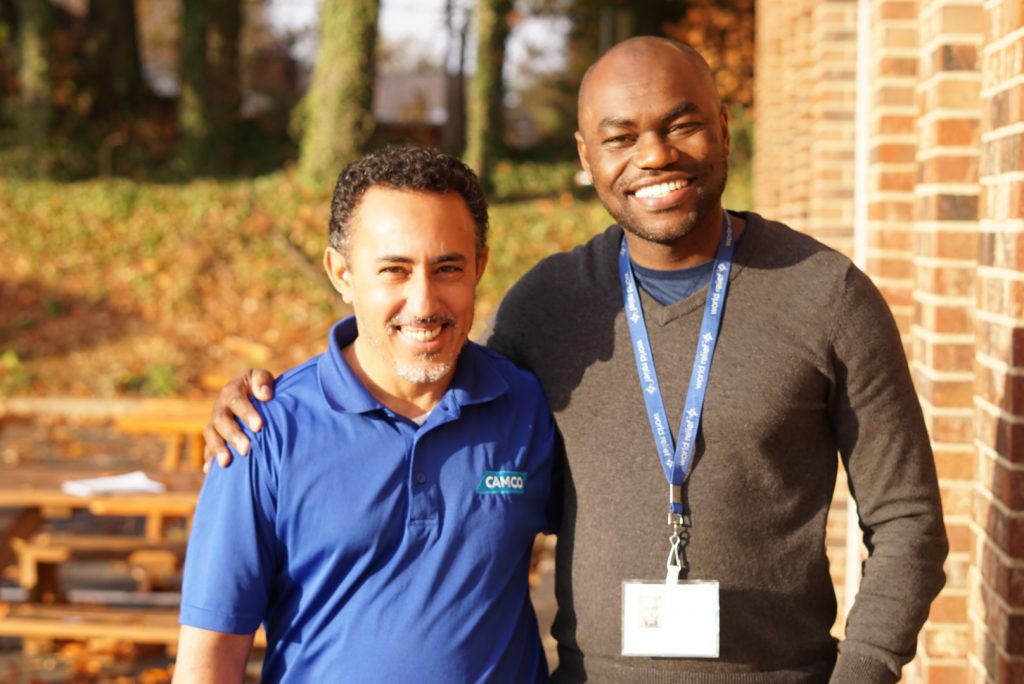
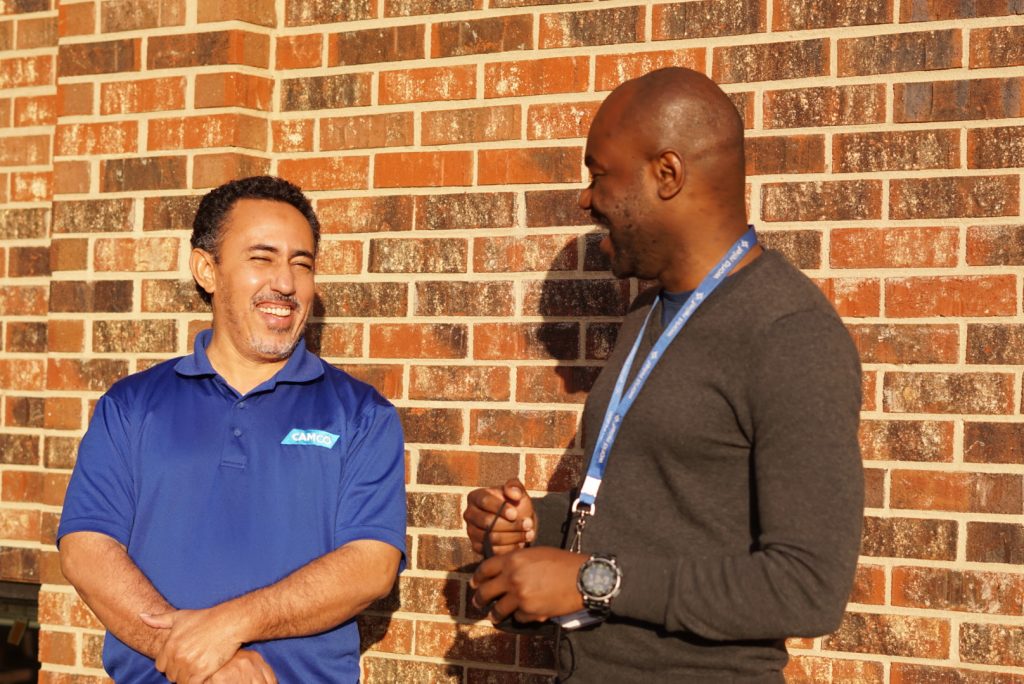
Opportunities That Change Everything
The kindness that Agali says he has been shown stands in contrast to what he experienced in where he came from, Niger.
“Whenever I come to the office at World Relief, everyone is very friendly,” says Agali. “They are genuinely concerned and want to know how I’m doing. It’s incredible to see that in such a busy country, at such a busy time—to have people call me and check in on how I’m doing. I wish there were another word for thank you.”
Reflecting on why he applied for an SIV and decided to leave Niger, Agali mentions the country’s state. While the country is on the brink of civil war, and it might erupt at any time, he says he was diligent in deciding to leave due to his family being a part of a targeted community.
“In my community, we are the minority. My tribe is having a tough time in comparison to other tribes,” he says.
Now, Raphael works directly with Agali as his case manager to help him find a job as soon as possible. Once he can find a job, he will be providing the kind of life he has been wanting to give his five children and wife since arriving. Then the next step is finding a job for his eldest son, who has completed school and has specialized training. Beyond that, Agali says he is ready to work as soon as possible to begin giving back.
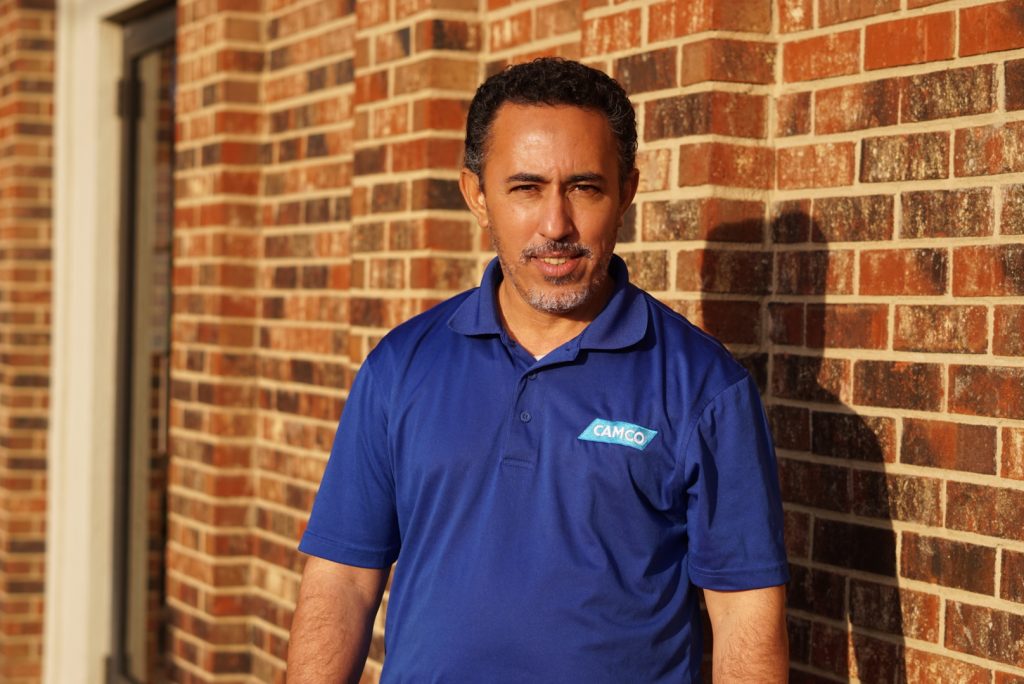
“It is because of World Relief that I’ve been able to start to understand life,” Agali says. “I do not have words for how incredible and kind the World Relief team has been to me. The only way I know how to show my gratitude is through giving back. I don’t know how yet, but one day, that’s what I hope to do.”
Agali uses the gratitude in his heart toward World Relief to motivate him to get a job as soon as possible so he can give back sooner. He already has in many ways. Will you be like Agali and give back while you still can?
Join us in preparing to resettle the hundreds of refugees that will be making their way to our community soon. With your gift, you will be able to see how generosity directly affects the livelihood of others.
Don’t wait for their arrival; prepare to welcome them with a gift today.
Advent Prayer Guide: Taking Heart
We dwell in a world still racked with extreme poverty, violence, mass displacement, and suffering. Covid-19 continues to expose these realities of injustice in new and overwhelming ways, and it feels debilitating. Advent is a moment to enter in, hold these realities, bring the grief we carry, sit in the brokenness, and long together for restoration.
For those of us who follow the Christian faith, Advent reminds us of the hope we have. In the aching, longing, and waiting we are reminded that,
The light shines in the darkness, and the darkness has not overcome it.
John 1:5
That’s why this Advent season, we want to invite those of you who share our faith to pray with us. Let us pray for the heaviness we carry and the brokenness we see in our own lives and in the world around us.
Through this guide, you will join others in the World Relief community in daily prayer for our refugee and immigrant neighbors. Let this Advent season be filled with renewal, rest, and restoration as we offer up our prayers.
Advent Week One: November 28
Read: Isaiah 9:2-7
Reflect & Pray: Christmas time is full of lights. There are houses with lights on their roof or your Christmas tree that is filled with little light bulbs and sparkle. Could these lights be a reminder this Christmas season of the light that broke into the darkness? God sent the One who is light to come into the darkness so that we could live in a relationship with him. The light has come!
Advent Week Two: December 5
Read: Ephesian 2:14-18
Reflect & Pray: In the midst of chaos, Jesus entered into our midst. He would live the life we could not live, fulfilling God’s requirement. When he entered, he brought with him perfect peace. Peace that heals, peace that reconciles, peace that invites, peace that challenges, and peace that brings hope.
Advent Week Three: December 12
Read: John 13:34-35
Reflect & Pray: The distinguishing mark of Christ’s followers is love. We love because God first loved us (1 John 4:19). Our love compels us to serve sacrificially and welcome our neighbors whether they be natural-born or foreign-born.
Advent Week Four: December 19
Read: Luke 1:46-56
Reflect & Pray: Mary’s song is a hymn of praise. She expresses her confidence that God will be true to his promises to his people. We can have this same confidence that God will be faithful to what he is doing in us, in our communities, and in our world.
Continuing in Prayer: December 26
Read: Psalm 27:13-14
Reflect & Pray: We have celebrated the arrival of God’s Son coming into the world. This is how we know hope, peace, love, and joy. And now we remain in the Lord. We will see his goodness, we will wait, and we will take heart.
More ways to pray with World Relief:
Mercy over Judgment
By K.J. Hill and Reema Nasrallah //
The tragic fall of Afghanistan’s government has led the international community to rally to assist evacuees fleeing the Taliban. More than 1,000 of these Afghan evacuees are slated for resettlement in North Carolina in the coming months.
As a pastor, I have been getting lots of questions about this crisis. Many of the questions are rooted in compassion with a sincere desire to help, like “How can we help people arriving overcome culture shock?” or “How can we meet basic needs like housing, clothing and food?” Other questions reveal cynicism, angst, and fear, such as “How do we know people coming here can be trusted?” or “How do we know they are who they claim to be?” These questions — which are also asked about asylum-seekers at our southern border — aren’t new, but are actually the same questions that the early church was asking.
In fourth-century Antioch, Archbishop John Chrysostom objected to the congregations who were complaining about poor foreigners (including refugees and economic migrants) arriving in their city: “But to what extent do [the poor] seek to deceive you? They are fugitives, they say, strangers, worthless creatures, who have left their native land and are gathering in our city. Do you resent this, tell me, and do you pluck the crown of honor from your city, because all men consider it a common refuge, and prefer it to their own land? Nay, rather, for this reason you ought to exult and rejoice, that to you, as if to some common market, they all run, and consider this city their common mother.” Read more at Baptist Press.
4-Week Advent Devotional: An Invitation to Welcome
What is Advent?
Advent focuses on the season of expectation as those of us who are Christians anticipate the celebration of Jesus Christ’s birth at Christmas. Throughout Church history, Christians have observed Advent, first to celebrate the incarnation of Jesus, and then to look forward to someday when He will return.
Today, the four Sundays before Christmas are an opportunity for the Church to remember the birth of Christ, celebrate what His life and death meant for the world, and look forward to the day when He will come again.
We call this season Advent, when we reflect on the themes of hope, love, joy, and peace and acknowledge each as a good gift from God that can give us a unique way to think about our relationship to Him.
All four weeks of Advent lead up to the culmination on Christmas Day when Christians celebrate the gift of Jesus Christ’s arrival on earth!
Answering the Invitation
The Christmas season is special for Christians – because as we prepare our hearts to celebrate Jesus Christ’s arrival on earth and welcome His presence, we have an opportunity to welcome our new neighbors – arriving immigrants and refugees.
Jesus said, “I was a stranger, and you welcomed me.”
Matthew 25:35
We believe that this verse and the season of Advent provide an opportunity.
It is a call for us to welcome strangers, including immigrants and refugees, the same way we would want to welcome Jesus!
Download the Advent Devotional: Invitation to Welcome
That is why we created this Advent devotional guide for you. It’s an invitation to join with your friends. Your loved ones. A small group. Or your family. Together, this is a guide for celebrating Advent in light of our Christian calling. Will you join us and learn about our calling to create just communities of love and welcome?
More Advent Resources from World Relief Chicagoland:











